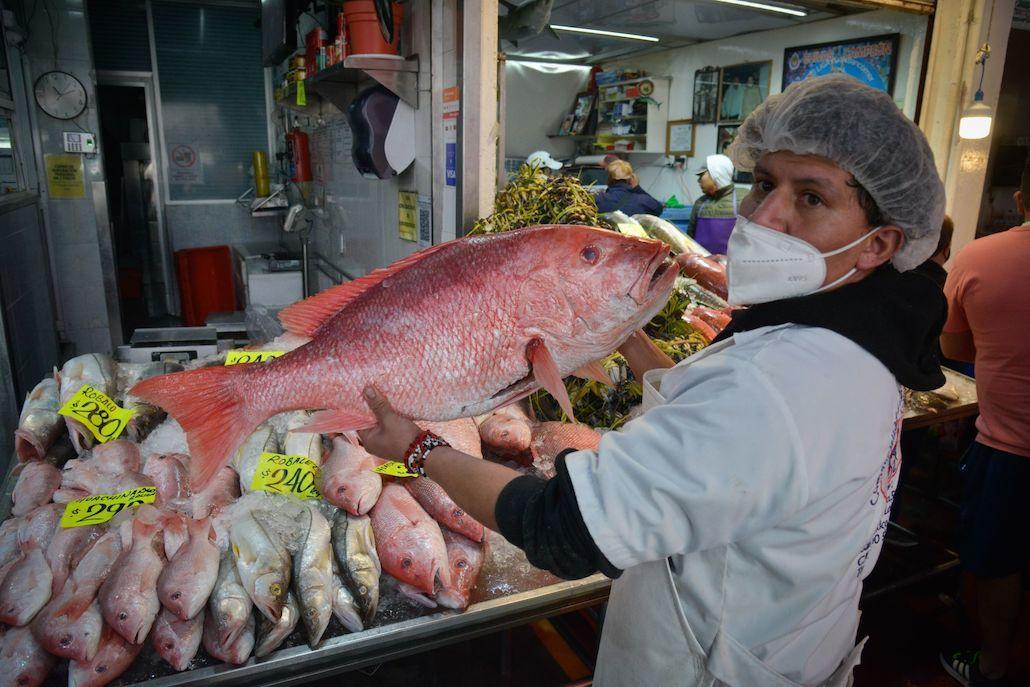Compared to five years ago, the market for seafood consumption in Mexico shows an upward trend, due to two main factors, health and concern about climate change.
This was revealed by the “Study on the perception of fish and seafood consumption in Mexico 2022”, prepared by GlobeScan, published as part of the launch of the third Latin American Summit for Fisheries and Aquaculture Sustainability.
The study, sponsored by the Mexican Council for the Promotion of Fishery and Aquaculture Products (Comeesca) and the organization Collective Impact, is the first to be carried out in Mexico and is key to decision-making in the sector, said Luis Bourillón, with a collective impact, during the presentation.
One of the most important revelations, obtained in the consumer survey, was that a third of Mexicans say they eat seafood. Of this percentage, only a third consume them several times a week.
To obtain the information, GlobeScan conducted a total of a thousand interviews, in a sample that included men and women over 18 years of age in 20 cities in the country, including Mexico City, Guadalajara, Monterrey; or coastal cities such as Cancun, Acapulco, Tijuana or Veracruz.
According to the analysis, Mexicans' main reason for not eating seafood is the price. The home is the place where these foods are eaten the most, since only 10% of respondents do so in restaurants or fast food places.
Consequently, the supermarket is where the most seafood is bought.
Tuna is the seafood product most eaten in Mexican homes, followed by shrimp, tilapia and salmon. However, in terms of preferences, the appetite is primarily inclined to shrimp.
Luis Bourillón indicated during the presentation that one of the key lessons learned is people's high level of desire to act to make consumption sustainable.
“Consumers want to protect fish and seafood so that next generations can enjoy it,” he explained.
Younger age groups and people living in coastal cities are the ones who lead the desire to take personal action, according to the survey. The most common way: switch to buying products that protect the ocean.
Squid and crab are the species that most doubt that they will be available in the next 20 years.
The results were compared with the global study “Healthy and Sustainable Living”, which also shows an upward trend among Mexicans to consume products that protect animals and have less impact on nature.
However, the main barrier to choosing products with a guarantee of sustainability in Mexico is their availability.
According to the National Fisheries and Aquaculture Commission (Conapesca), around 25% of the catch volume in the country has a sustainability certificate.
According to the Ministry of Agriculture and Rural Development (Sader), in 2021, fish production reached 1.9 million tons, with a market value of 47 billion pesos.
Safety is also sustainability
Fishing plays an essential role in food security on the planet, so it is essential that the distribution of products complies with the necessary health standards, said specialist Nelly Peña Haaz, consultant on good livestock practices.
Peña Haaz pointed out that to guarantee the safety of seafood, the certainty that it will not harm the consumer when ingested, it is necessary to act at all levels of the food chain.
Foodborne illnesses can be caused by three types of hazards, as categorized in the safety area: biological (bacteria or viruses); chemical (pesticides, fertilizers); physical (for example, ingesting a hook while eating a fish).
He said that it is more effective and less expensive to eliminate or control food risks directly in production than to monitor the final product.
In the case of fishing and aquaculture, he said, prevention procedures must be applied from production units or boats.
According to the expert, some of the actions to be taken in the case of aquaculture are the appropriate selection of land, avoiding the use of medications, optimizing water regulation systems and taking care of the slaughter and evisceration process.
With regard to fishing, it recommends using clean and disinfected equipment, using drinkable ice to preserve the product, control fuel and chemicals on board, and extreme staff hygiene.
To achieve this, Nelly Peña emphasized, public and private sector intervention is necessary to remedy the lack of services and infrastructure.



Comentarios (0)